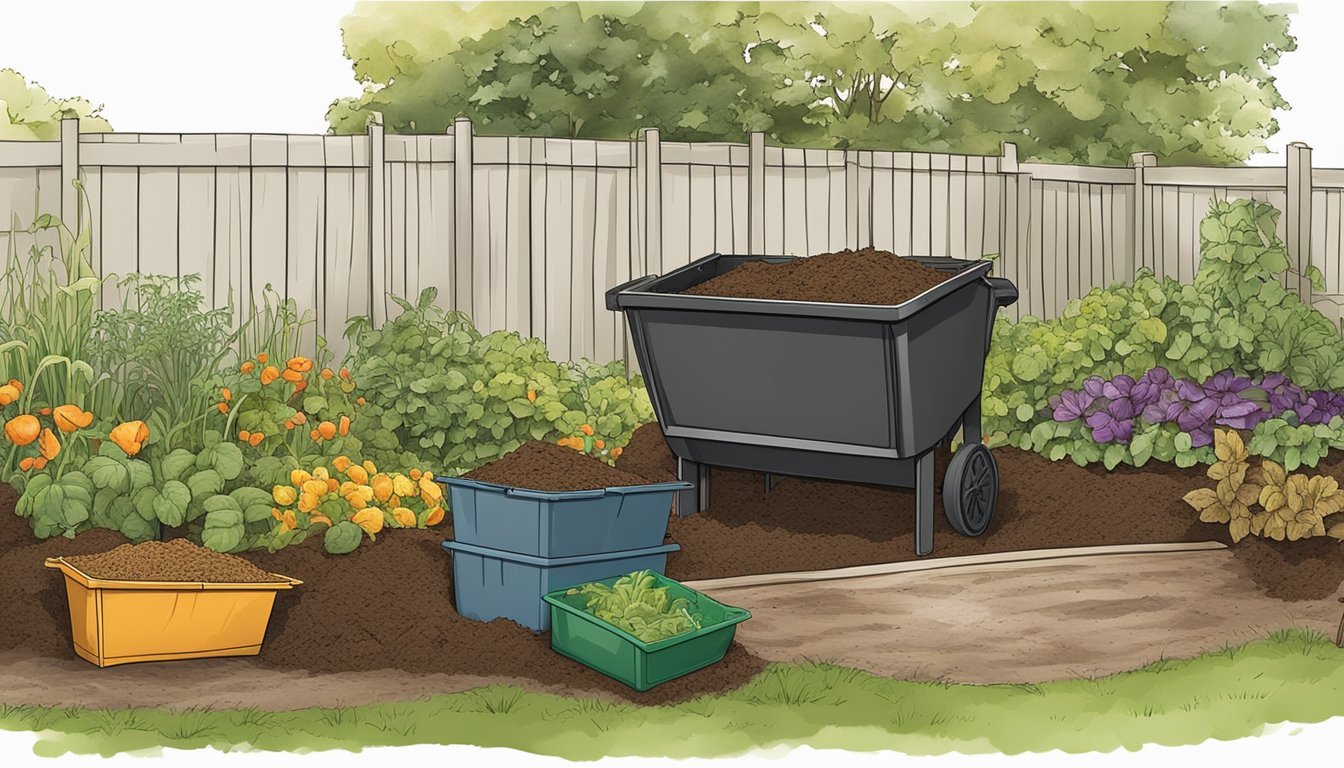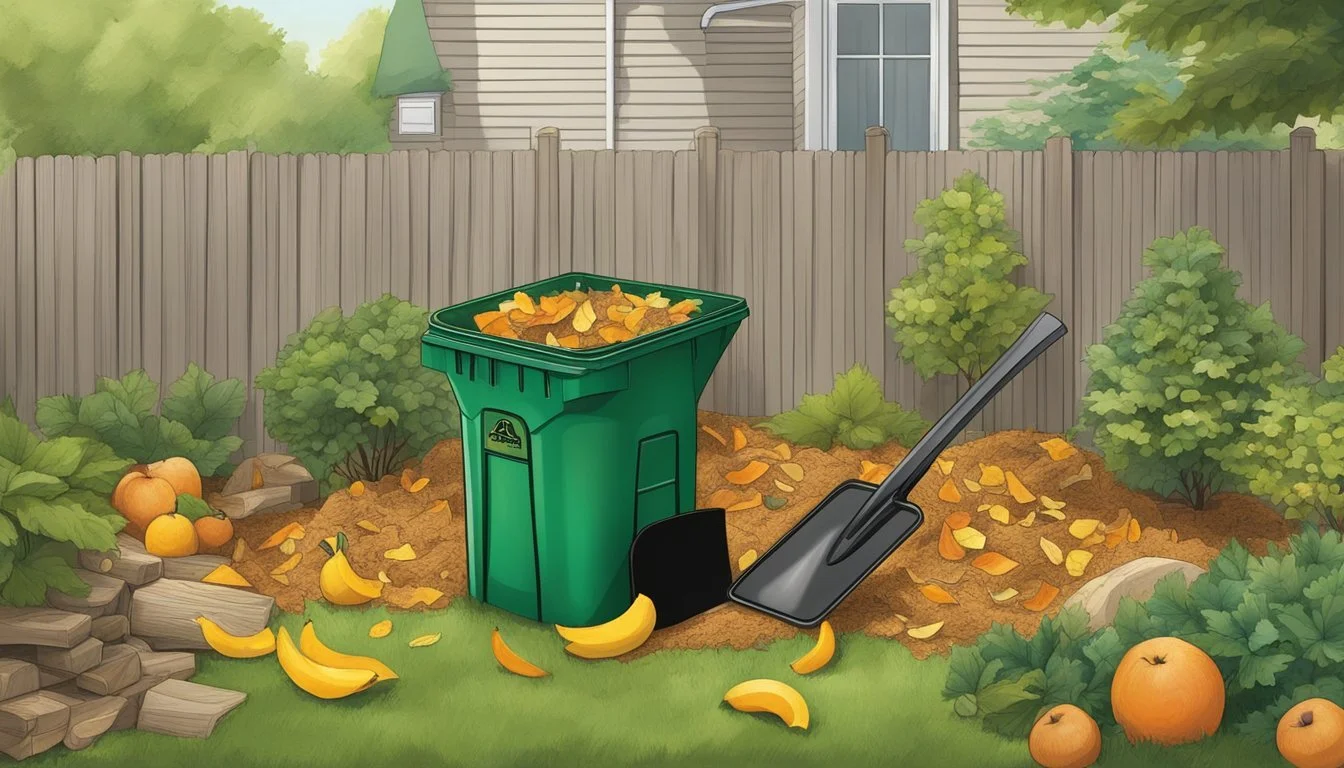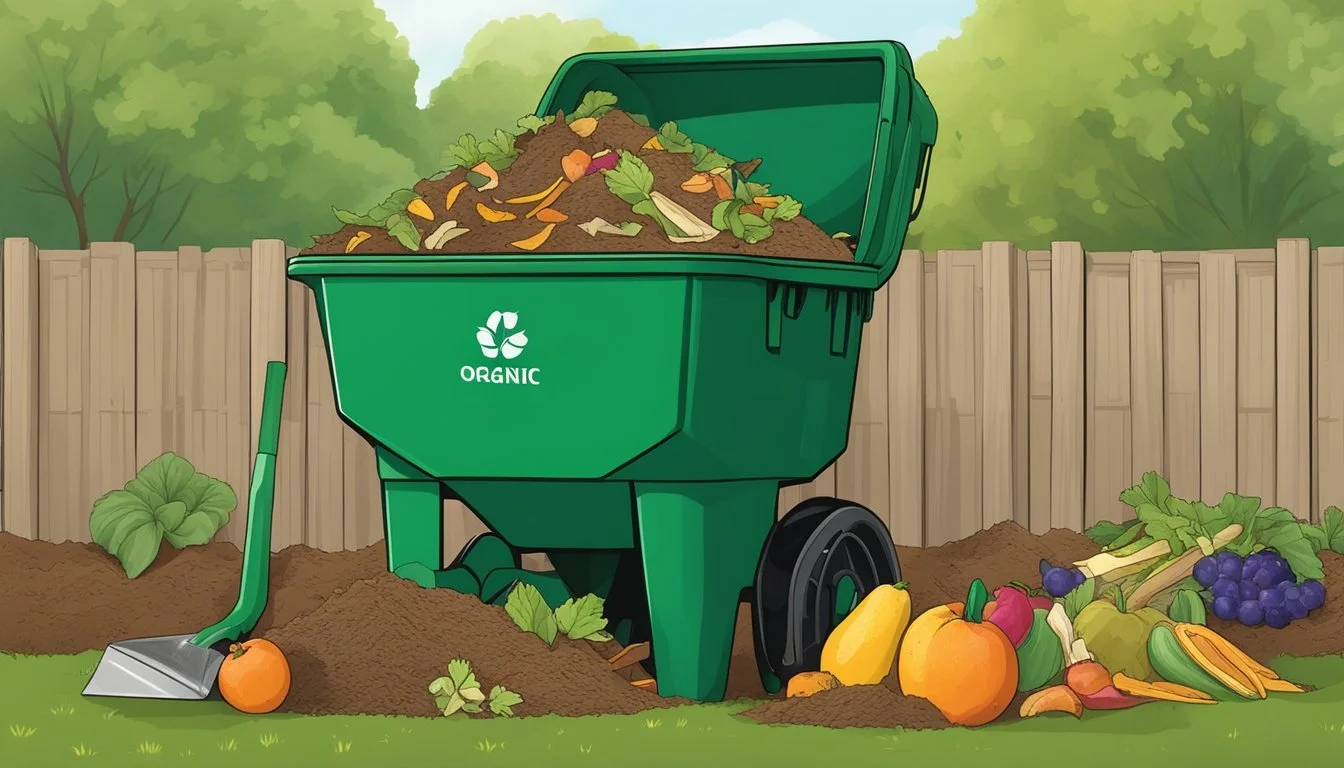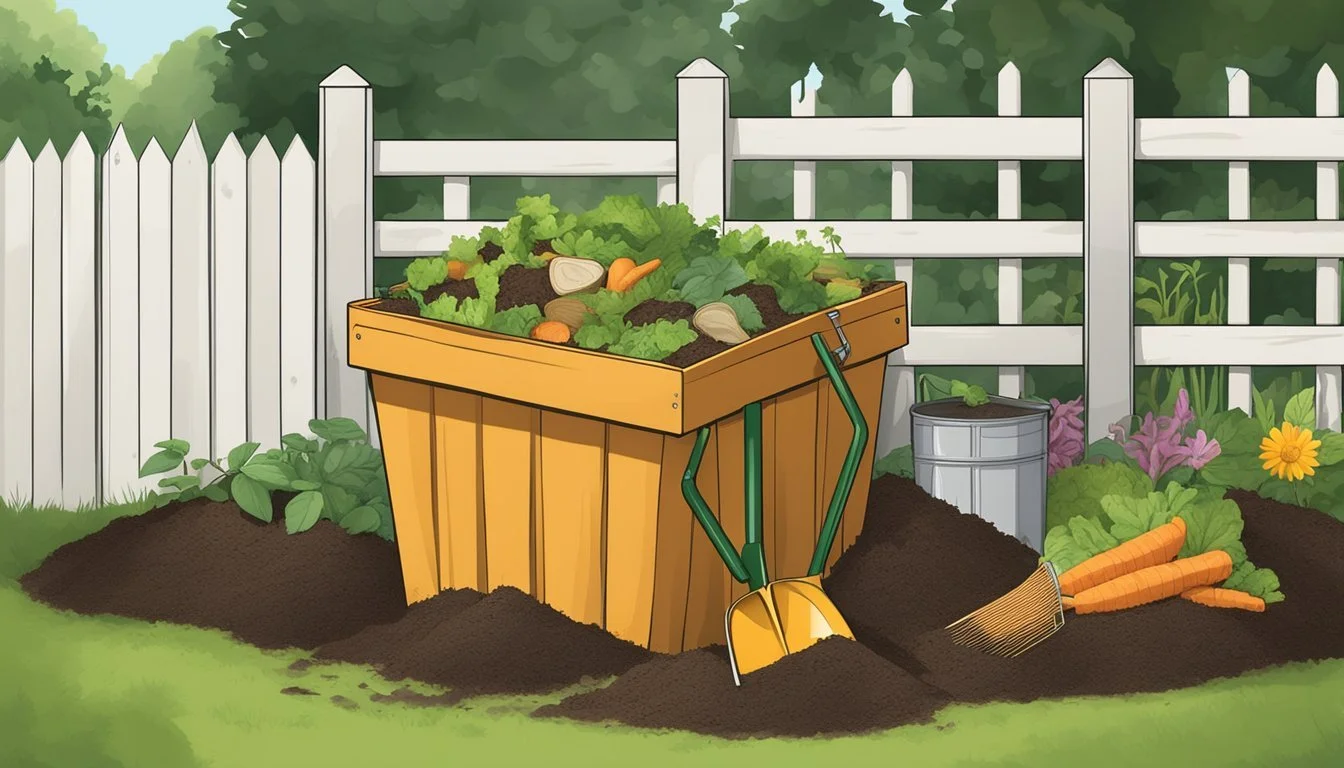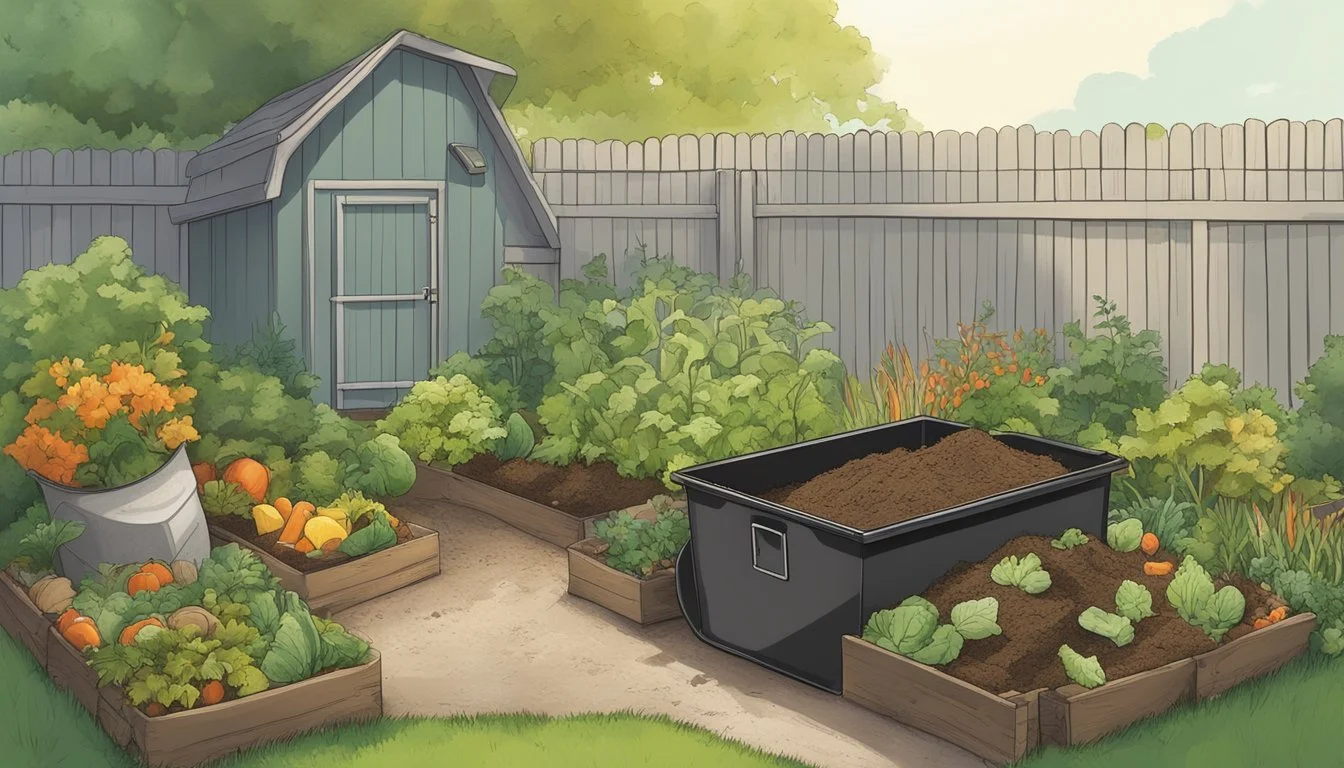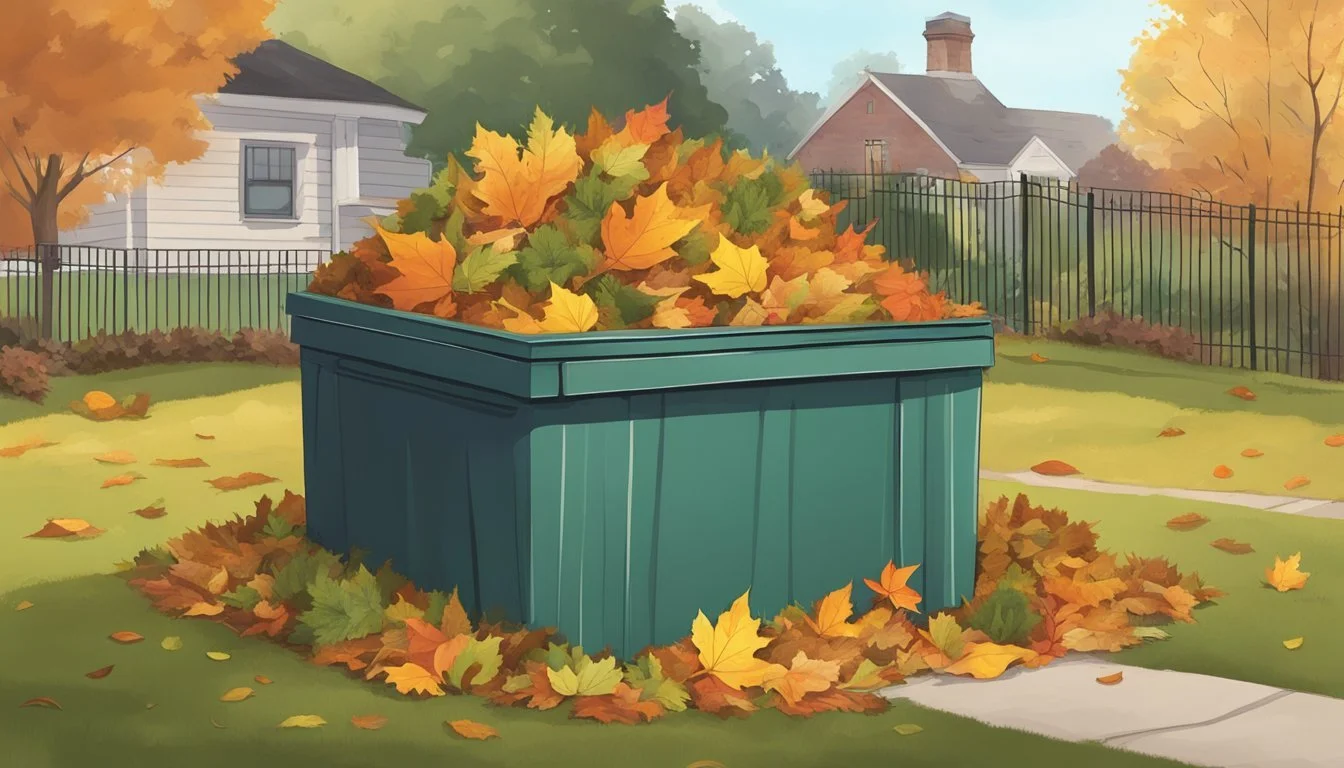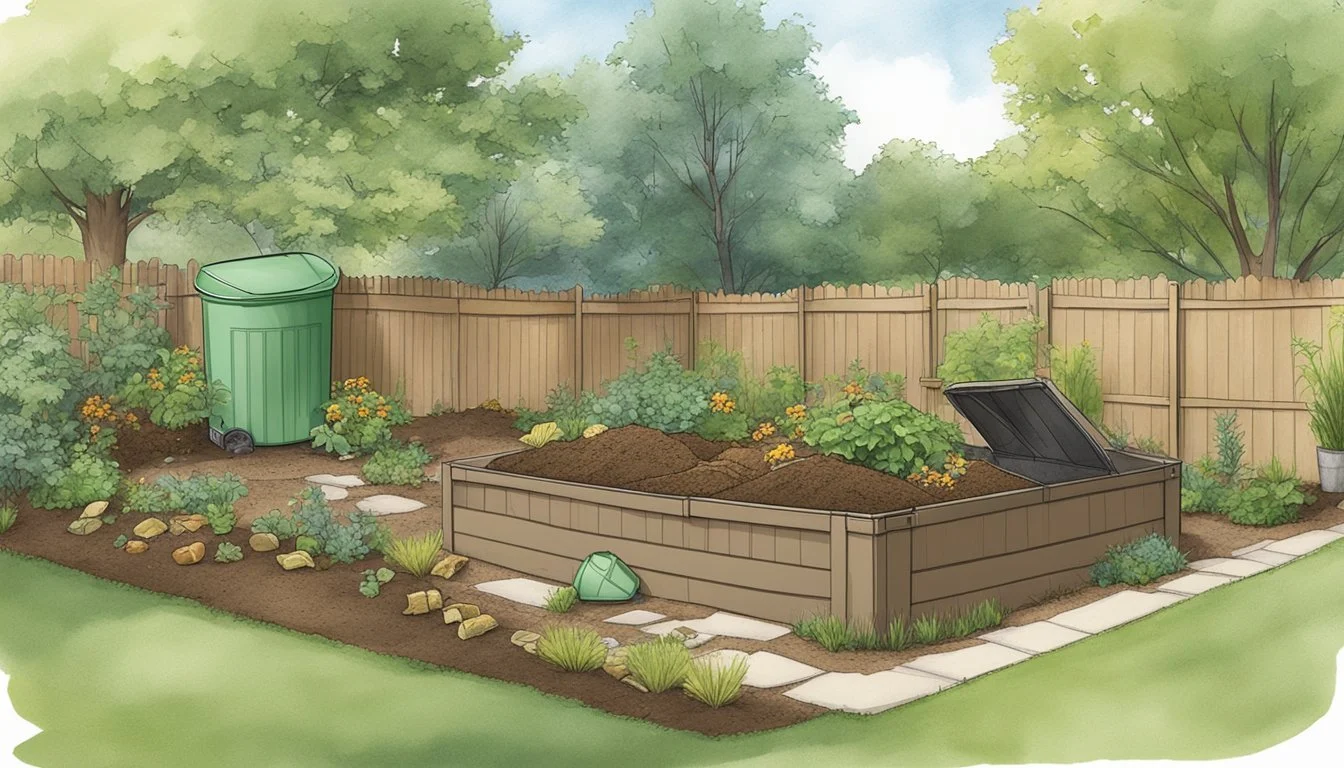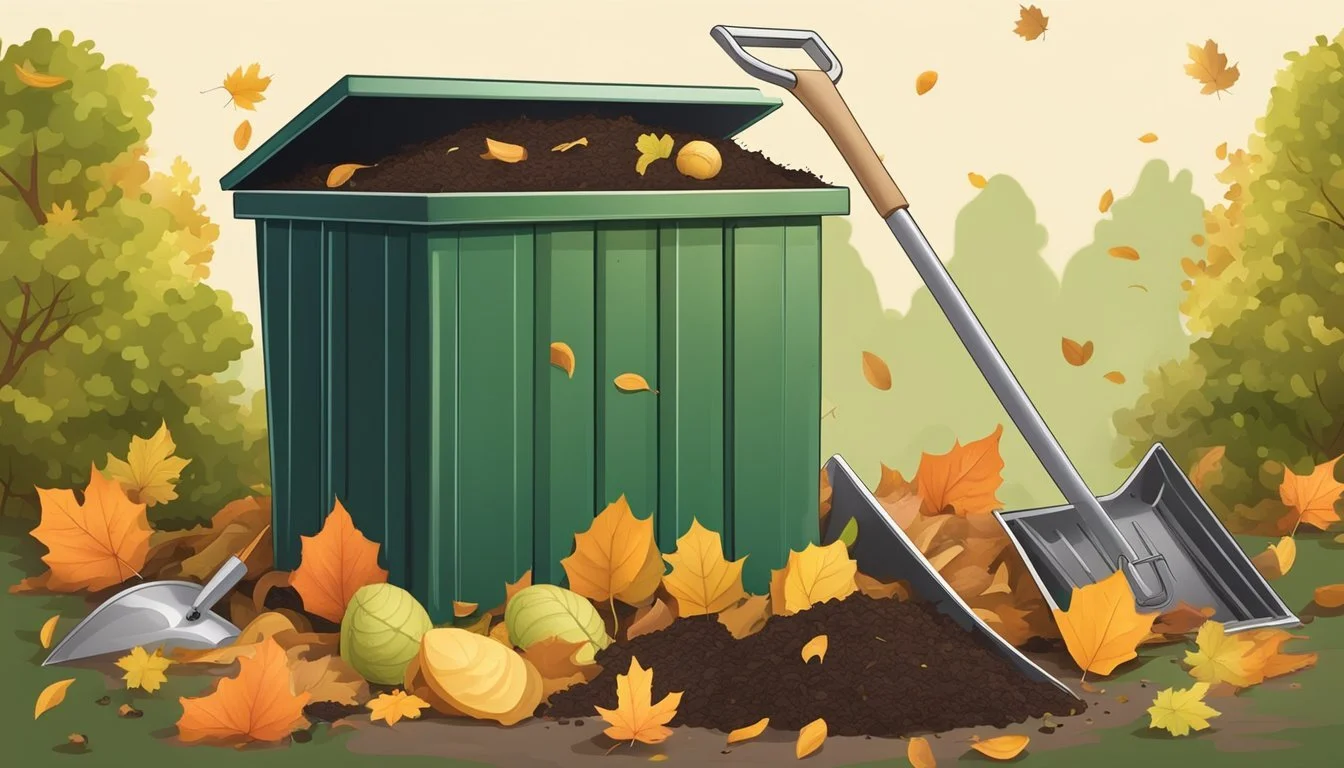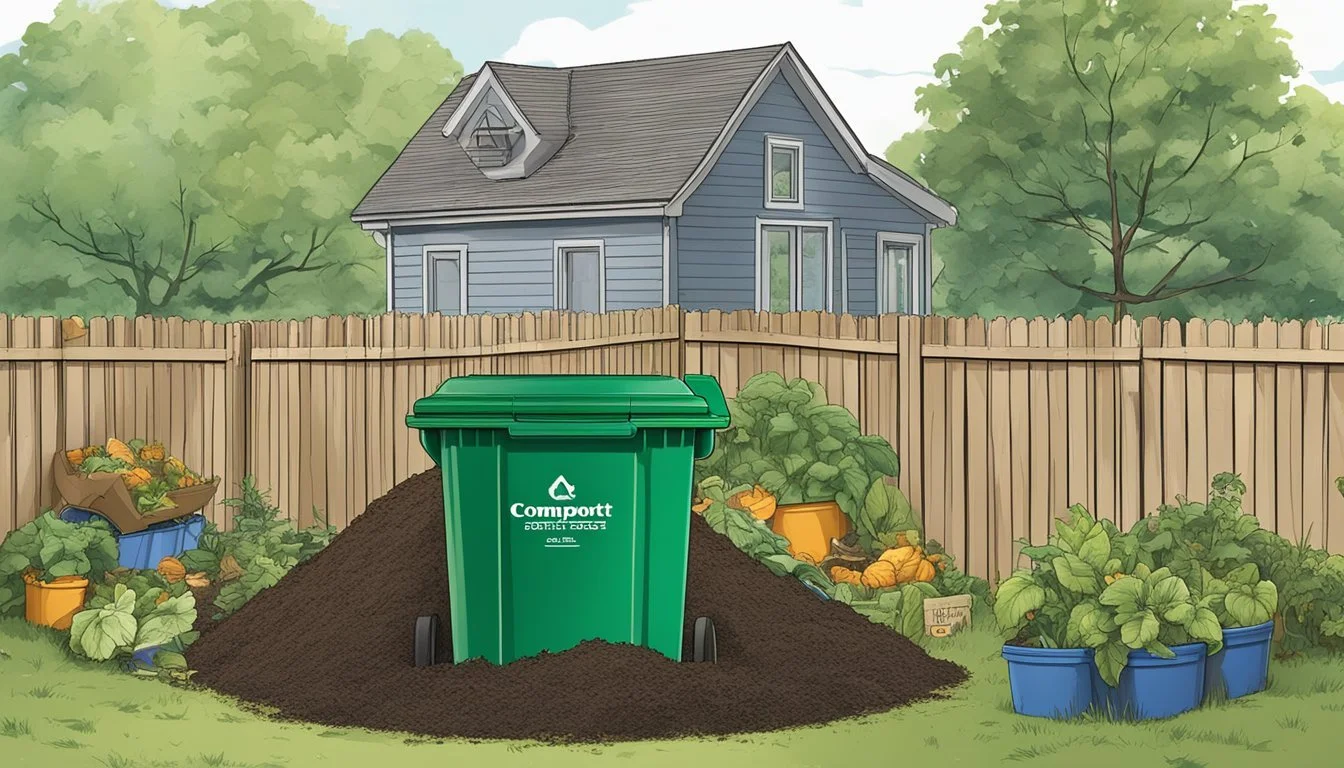Guide to Composting in Ann Arbor, MI
Essential Tips for Local Residents
Composting in Ann Arbor, Michigan offers residents a sustainable way to reduce waste while contributing to soil enrichment. As part of the city's waste management program, locals are encouraged to contribute organic waste to city composting services or to start their own composting practices at home. Organic materials such as food scraps, yard waste, and certain paper products can be transformed into valuable compost, which in turn can be used to enhance local gardens and landscapes.
The City of Ann Arbor provides several options for compost disposal and collection, including curbside pickup of compostable materials and drop-off locations for yard waste. During the winter months, Ann Arbor sustains its commitment to composting by providing monthly curbside compost cart services. This service ensures that the environmentally conscious efforts of residents continue throughout the year, despite the colder climate which typically slows down decomposition.
For those interested in personal composting, guidance is offered detailing how one can easily begin composting at home. Simple steps are needed to get started, and nature handles the bulk of the process. Whether contributing to the city's composting program or nurturing your own compost pile, the resulting natural fertilizer serves as a boon to the health of plants and the vibrance of the local ecosystem.
Basics of Composting
Composting in Ann Arbor provides an excellent way to enhance your garden soil while promoting sustainability. This section will define compost and explore its benefits specifically for gardeners.
What Is Compost?
Compost is a soil amendment produced from the aerobic decomposition of organic materials. It is often termed "black gold" by gardeners for its ability to enrich the soil. This rich substance is created by combining materials like food scraps, leaves, and yard trimmings in a controlled environment. Through natural processes, these materials break down into a nutrient-rich humus that significantly improves soil quality.
Benefits of Composting
Composting offers multiple benefits for both the environment and garden enthusiasts:
Soil Health: Compost acts as a soil conditioner, improving soil structure, texture, and aeration. It enhances the soil's ability to hold water and nutrients.
Nutrient Content: The process of composting creates a rich source of nutrients for plants. By adding compost to the garden, one ensures a slow release of substantial nutrients like nitrogen, phosphorus, and potassium.
Plant Growth: Enriched with compost, soil better supports plant growth, leading to healthier, more robust gardens.
Waste Reduction: Composting provides a substantial reduction in household waste, as organic materials are repurposed into valuable compost instead of taking up space in landfills.
By understanding the basics of compost and its benefits, residents can make an informed choice to contribute to a greener Ann Arbor, enhance their garden soil, and promote a healthier ecosystem.
Composting Methods in Ann Arbor
Ann Arbor, Michigan, offers residents several effective methods for transforming organic waste into valuable compost. These techniques cater to different lifestyles and preferences, ensuring that composting is accessible for all.
Backyard Composting
In Ann Arbor, backyard composting is a popular option for turning yard waste and kitchen scraps into nutrient-rich soil. Residents can utilize compost bins or piles sized appropriately for their space. Essential to backyard composting is maintaining a balance between 'greens' such as food scraps and 'browns' like dried leaves, ensuring proper decomposition.
Steps to start a backyard compost pile:
Choose a dry, shady spot near a water source.
Start with a layer of browns for aeration and drainage.
Add greens and mix or layer them with more browns.
Keep the pile moist and turn it regularly to aerate.
Community Composting
For those who do not have the space or prefer a more communal approach, community composting programs are available. The City of Ann Arbor offers curbside compost collection from April through November, where residents can contribute to larger composting initiatives.
Benefits of community composting:
Provides an option for apartment dwellers and others with limited space.
Reduces the burden of maintaining a personal compost pile.
Strengthens community engagement and collective environmental efforts.
Vermicomposting
Vermicomposting uses worms to break down organic material, providing an efficient indoor composting solution suitable for all year round. Red wiggler worms are typically the species of choice, converting waste into valuable vermicompost, a potent natural fertilizer.
Basics of vermicomposting:
Set up a worm bin with proper bedding made of shredded newspaper or cardboard.
Add kitchen scraps, avoiding dairy, meat, and oily foods.
Maintain the bin in a cool, dark place and harvest the compost as needed.
By utilizing these composting methods, residents of Ann Arbor can reduce their environmental footprint and produce a rich amendment for their gardens and plants.
Starting Your Compost
When embarking on composting in Ann Arbor, selecting an appropriate compost bin and understanding how to build a fundamental compost pile are essential steps to ensure success.
Choosing a Compost Bin
Ann Arbor residents can utilize compost carts provided by the city for curbside compost collection, which operates from April through November. These carts are convenient for those with limited space or for beginners. For those interested in year-round composting, acquiring a bin that can insulate materials against the cold is beneficial for continued decomposition. It's important to consider a bin's size based on the amount of organic waste typically generated. Available compost options accommodate various household needs, ranging from small kitchen-top bins to larger outdoor systems.
Building a Compost Pile
Composting is a balance of carbon-rich materials, like twigs and dead leaves, and nitrogen-rich materials, such as food scraps and lawn clippings. Compost piles in Ann Arbor should begin with a base layer of twigs or small branches to improve aeration. This layer acts as the foundation for subsequent compost layers. When constructing a compost pile, alternating these layers is vital:
Nitrogen material (green)
Food scraps
Grass clippings
Carbon material (brown)
Leaves
Cardboard
Straw
Maintaining a ratio of about 3 parts brown to 1 part green is a basic rule for efficient decomposition. Regularly turning the compost pile accelerates the process and leads to more uniform results. Residents should ensure to cut up larger items and avoid composting diseased plants or invasive weeds to prevent spreading through the resulting compost.
Composting Guidelines
In Ann Arbor, composting is a valued, eco-friendly practice that diverts waste from landfills. The city provides specific instructions for what is and isn't accepted in its compost program.
What to Compost
Residents can compost a variety of organic materials. Most notably, leaves, grass clippings, and food scraps including fruits, vegetables, meat and bones, are acceptable. Ann Arbor also accepts BPI certified biodegradable products, which are designed to break down in composting facilities.
Acceptable Compost Materials:
Yard waste (e.g., leaves, grass)
Food scraps (e.g., fruits, vegetables, meat and bones)
BPI certified compostable products
What Not to Compost
It's equally important to know what should not go into the compost cart. Materials like plastics, even if labeled "biodegradable," that are not BPI certified, pet wastes, and diapers pose problems for composting facilities and should be kept out.
Unacceptable Compost Materials:
Plastics (unless BPI certified)
Pet waste
Diapers
Maintaining Your Compost
Maintaining a compost pile in Ann Arbor requires attention to detail, especially considering the challenges posed by seasonal changes. Proper aeration, moisture management, and temperature control are essential for a successful compost.
Aeration and Moisture
For compost to break down effectively, it must have adequate aeration and moisture. Turn the pile regularly to introduce air, which facilitates the aerobic bacteria necessary for the decomposition process. The pile should be moist but not wet, akin to a wrung-out sponge. In winter, maintaining the right moisture balance can be challenging, but wrapping wet items before adding to the compost can help manage excess liquid.
Temperature and Microorganisms
The heat generated by microorganisms is integral to breaking down organic material. A compost pile should maintain a temperature between 90-140 degrees Fahrenheit for optimal activity, which may be monitored using a compost thermometer. In colder months, positioning your pile to receive maximum sunlight can help maintain warmth. Moreover, the presence of overwintering creatures, like Fireflies, can indicate healthy compost activity. For those unable to maintain outdoor composting in winter, Ann Arbor's curbside compost collection provides an alternative for organic waste, diverting it to a local composting facility.
Using Your Compost
Once the composting process is complete, the resulting material is an excellent resource for gardeners. This rich, humus-like substance is a natural fertilizer that provides a myriad of benefits to soil and plants.
In Your Garden
In one's garden, compost can be used to mulch around flowers and vegetables, retaining moisture and suppressing weeds. By gently working the compost into the soil around the plants, beneficial microorganisms are introduced, and soil structure improves. This translates to healthier plants and a more vibrant garden.
For Flowers: Apply a 2 to 3-inch layer of compost around the base of the flowers to promote vibrant blooms and reduce the need for chemical fertilizers.
For Vegetables: Incorporate compost into the vegetable beds before planting to enhance nutrient content and improve the soil's ability to hold water.
As a Soil Amendment
As a soil amendment, compost is unparalleled. It can be added to garden beds in the fall or spring to enrich the soil. It's especially useful for:
Improving Soil Structure: Compost helps break up clay soils and enables sandy soils to retain water.
Providing Nutrients: It slowly releases a wide spectrum of essential nutrients, including nitrogen, phosphorus, and potassium, thus reducing the reliance on synthetic fertilizers.
Gardeners are encouraged to mix compost into the soil at a ratio of up to 1:3, compost to soil, before planting. When utilized properly, compost improves soil structure, provides nutrients, and fosters a more robust ecosystem in one's garden.
Municipal Compost Programs
Ann Arbor, Michigan sustains a robust commitment to environmental sustainability through its organized municipal compost programs. These initiatives allow residents to easily manage organic waste through convenient collection services and accessible drop-off facilities.
Curbside Compost Collection
The City of Ann Arbor offers a curbside compost collection program allowing residents to dispose of organic matter like fruit and vegetable scraps, leaves, and even meat and bones. To facilitate this program, the city provides carts, and the collected compostable materials are processed to create nutrient-rich soil amendments.
Schedule: Weekly collection from April to December; limited monthly service during winter
Materials Accepted: Includes yard waste, food waste, and non-coated paper products
Cart Size: Specified to accommodate branches less than 6 inches in diameter
Customer Service: For issues or questions, residents are encouraged to contact the Customer Service Center
Drop-Off Compost Facilities
In addition to curbside services, Ann Arbor maintains drop-off compost facilities for organic waste. These sites support higher volumes and materials not accepted in curbside bins.
Locations: Detailed information on site locations is available through the city's Trash, Recycling & Compost page
Usage: The service caters to residential composting customers; some may require a fee
Guidelines: Users must follow specific guidelines on material preparation and separation
Through these programs, Ann Arbor showcases its dedication to reducing landfill waste and promoting environmental stewardship.
Seasonal Composting in Ann Arbor
Ann Arbor, Michigan has tailored its composting programs to adapt to the changing seasons, addressing the specific needs and challenges of residents throughout the year.
Winter Composting
During the winter months, Ann Arbor provides a winter curbside compost collection service that is both convenient and environmentally friendly. Collections are limited to compost carts and run on a modified schedule with designated pickup dates, such as January 8, 2024, February 5, 2024, and March 4, 2024. It is important to note that during this period, paper yard bags are not collected.
Fall Leaf Collection
For the fall season, Ann Arbor offers a separate leaf collection service, where residents can use paper yard bags or compost carts to dispose of fallen leaves. The city's composting facilities process these leaves, turning them into nutrient-rich compost used for landscaping and gardening. The local government ensures that this seasonal service is carried out effectively, helping to keep the city clean and its gardens thriving.
Advanced Composting Topics
In Ann Arbor, Michigan, advanced composting topics revolve around staying abreast of local regulations and understanding the nuances of large-scale operations. These topics ensure that composting efforts align with environmental guidelines and maximize waste diversion.
Composting Regulations
In Ann Arbor, compliance with state and local regulations is paramount for both individuals and businesses engaged in composting. The Michigan Department of Environment, Great Lakes, and Energy (EGLE) oversees composting activities to ensure they meet environmental standards. On private property, residents must adhere to city bylaws that dictate the permissible size and location of compost piles. For instance, a compost facility operating within city limits is subject to rules regarding odor control, leachate management, and the types of acceptable organic waste. Regulations are not just for maintaining public health and safety; they are also in place to encourage the effective diversion of waste from landfills.
Large Scale Composting
Ann Arbor is home to large-scale composting initiatives aimed at managing the green and food waste of the community. Larger operations like the city's compost facility manage a significant volume of organic waste, with equipment such as windrow turners aiding in the process. Commercial entities can partake in commercial compost programs where they contribute to the city’s efforts to divert waste from landfills. Such operations are designed to handle thousands of tons annually and require rigorous oversight to ensure that they operate efficiently and within the bounds of regulatory compliance. Large-scale composting contributes to the city's sustainability goals by transforming vast quantities of organic waste into valuable compost for agricultural and landscaping use.
Composting Resources
Ann Arbor residents have access to a variety of composting resources, ranging from supplies to educational programs. These resources facilitate effective composting practices within the community.
Where to Get Supplies
Residents looking for composting supplies can start at the City of Ann Arbor's compost facility, where they can purchase compost and mulch. This city-run service is essential for those initiating or maintaining their composting. For specific materials such as mulch or wood chips, local municipal services provide seasoned options. Seasoned wood chips are particularly recommended as they are free from weed seeds.
Local Suppliers:
City Customer Service: Offers compost and mulch sales
Local Garden Centers: Provide a variety of composting supplies, such as compost bins and tools
Education and Community Involvement
Knowledge about composting is just as important as the materials themselves. The Washtenaw County's website offers extensive information on the science and benefits of composting, showing how it's nature's way of recycling. It explains how leaves, grass, and food waste become food for microorganisms, which in turn enrich the soil.
Local workshops and community involvements sponsored by Washtenaw County provide opportunities to learn and participate actively in composting. Organizations such as WeCare Denali frequently educate residents on best practices for composting, aiming to increase sustainability within the community.
Educational Opportunities:
Washtenaw County Website: Detailed composting guides and resources
Community Workshops: Hands-on learning experiences provided by organizations like WeCare Denali
Troubleshooting
When engaging in composting practices in Ann Arbor, it's important to address common concerns such as odors and pests, and ensure proper compost bin maintenance. This section provides practical solutions for these issues, considering local environmental factors like buffer zones around storm drains and the necessity to reduce landfill waste.
Odors and Pests
Unpleasant odors emanating from compost bins are typically a sign of anaerobic decomposition, usually caused by excess moisture and lack of oxygen. To mitigate this, one should:
Balance green (nitrogen-rich) and brown (carbon-rich) materials, maintaining an optimal mix to facilitate aerobic decomposition.
Turn the compost regularly to introduce oxygen and speed up the composting process.
Pests, such as rodents and insects, are attracted to food waste in compost bins. To prevent infestations:
Secure the lid of the compost bin and ensure it's closed at all times.
Avoid composting meat and dairy products, as recommended on the Ann Arbor's compost information page.
Place the bin on a hard surface or use a wire mesh underneath to deter burrowing animals.
Compost Bin Maintenance
Proper maintenance of compost bins is essential for efficient waste breakdown and minimizing impact on the surrounding environment:
Regularly inspect the bin for cracks or damages that could attract pests and repair them promptly.
Clean the bin between composting cycles to prevent residue build-up and associated odors.
Ensure the bin is situated away from storm drains to provide a buffer and prevent nutrient runoff that could contaminate local waterways.
Remember to contact Ann Arbor's City Customer Service for compost cart maintenance issues, such as bins damaged during winter, as noted in the guidelines on winter compost collection.
Environmental Impact
In Ann Arbor, composting initiatives significantly influence waste reduction and promote sustainability. These efforts align with eco-friendly practices and aim to meet the community's environmental goals.
Reducing Waste
Ann Arbor's composting program plays a vital role in diminishing the city's waste footprint. By diverting 13% of total waste to composting, roughly 6,800 tons annually find new life as nutrient-rich soil, according to the city's green and food waste recycling program. Notably, compostable paper towels are part of the program, transforming what was once trash into valuable compost each April, when spring cleaning peaks.
Sustainability Practices
Sustainability in Ann Arbor continues beyond waste reduction, with composting operations encouraging environmental stewardship. The city's new compost regulations have taken a stricter stance against plastics to ensure the integrity of the compost produced. Compost created from these methods helps improve soil structure, reducing the need for chemical fertilizers and enhancing water retention, fundamental for long-term ecological health.
Regulations and Policies
In Ann Arbor, Michigan, regulations are in place to govern composting practices, with a clear distinction between local laws and state-level guidelines. These regulations aim to manage organic waste responsibly to reduce landfill pressure and protect the storm drains from contamination.
Local Composting Laws
Ann Arbor has specific municipal composting laws that residents must follow. The city collects compostable materials such as food waste, yard debris, and non-coated paper products. Items including meat, bones, and branches less than 6 inches in diameter are accepted, but must fit within the provided carts with the lid closed. The City of Ann Arbor Compost Program guides residents on how to properly dispose of compostables, with the intention of diverting waste from landfills and protecting environmental resources.
State Composting Regulations
At the state level, Michigan's composting regulations are managed by the Department of Environment, Great Lakes, and Energy (EGLE). Facilities dealing with compost must be registered with EGLE. The state provides oversight to ensure that composting operations do not negatively impact the environment. This includes monitoring potential runoff to storm drains and ensuring materials are processed in ways that minimize the risk of pollutants reaching both surface water and groundwater. Information on Michigan's composting facilities can be found on the State of Michigan's Composting Webpage.

